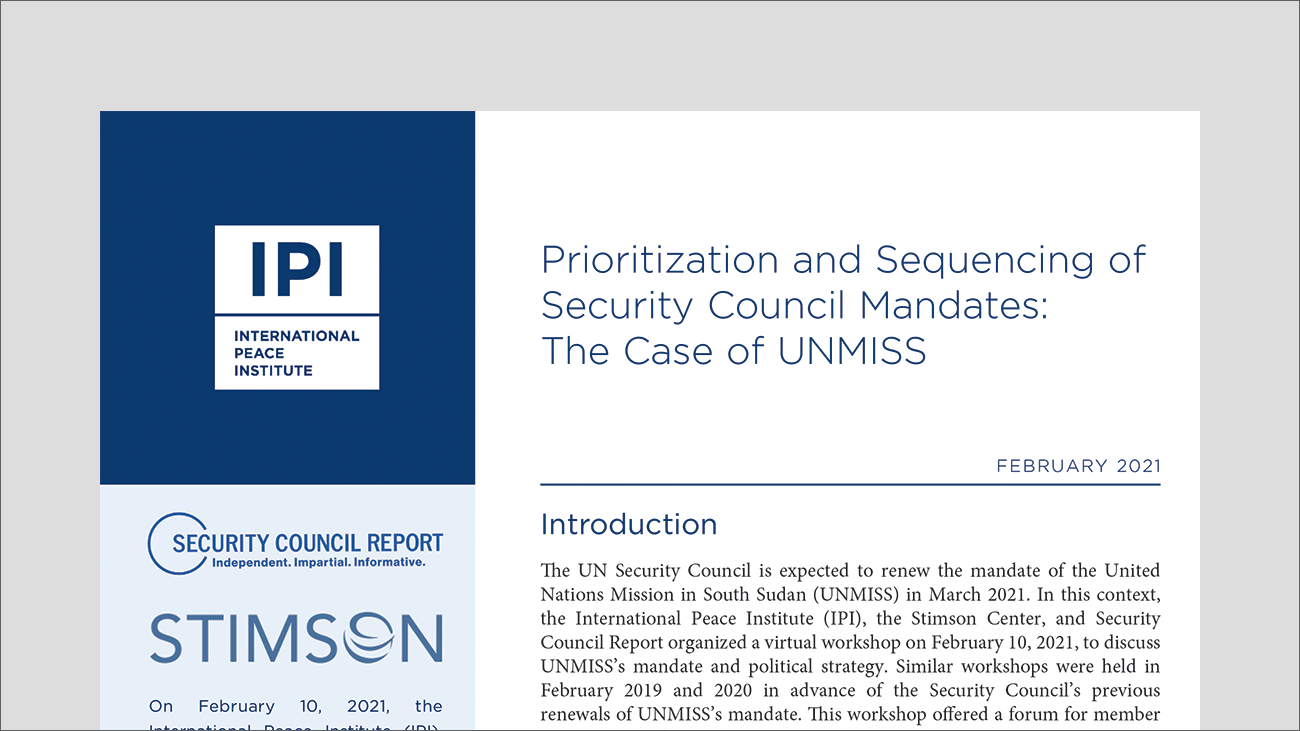
Nearly one year after the creation of a transitional government in February 2020, the main pillars of the June 2018 permanent cease-fire and September 2018 peace agreement in South Sudan continue to hold, but their implementation has progressed at a worryingly slow pace.
In this context, the International Peace Institute (IPI), the Stimson Center, and Security Council Report organized a virtual workshop on February 10, 2021, to discuss UNMISS’s mandate and political strategy. This workshop offered a forum for member states, UN staff, and outside experts to develop a shared understanding and common strategic assessment of the situation in South Sudan. The session was intended to help the Security Council make informed decisions with respect to the strategic orientation, prioritization, and sequencing of UNMISS’s mandate and actions on the ground. The workshop’s deliberations focused on the political and security dynamics in South Sudan, as well as on UNMISS’s current mandate and priorities for the coming year. Participants also discussed the findings of the independent strategic review of UNMISS, which were shared with the Security Council in December 2020.
Participants concluded that moving forward, the UN will need to engage more deeply and systematically to help South Sudan address underlying challenges. Encouraging South Sudanese ownership of the peace process and the country’s long-term sustainability is imperative. Doing so will require the Security Council, the UN Secretariat, and UNMISS to map out a coherent political strategy rooted in critical benchmarks and a clear understanding of how to leverage international partners and to map out options for UN support to the political transition.









